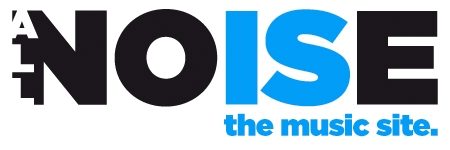If you are a regular streamer of music from sites such as Amazon, iTunes or one of the many others, you can’t have failed to notice the amount of streams available of songs currently in the charts, or coming out soon, but performed by cover bands.
When I say cover bands I don’t mean tribute acts or bands that regularly do covers as part of their discography. I mean bands that specialise in covering recent songs.
Let’s take the current number one ‘Call Me Maybe’ by Carly Rae Jepsen as an example. There are about half a dozen sound-a-likes listed on Amazon’s streaming store amongst the original version and karaoke tracks. So why the prevalence?
Is it something sinister, along the lines of the cover artists hoping customers pick the wrong version and stream a sound-a-like? Or is it remnants of tracks put online early to satisfy the demand of music fans wanting to stream music as soon as they hear it but with no official song available for purchase?
For instance, the track ‘Shady Love’ by the Scissor Sisters saw its video debut on YouTube way back on the 2nd January 2012. You still can’t stream the song officially but pop onto Amazon and you have two out of the eight results, the other six being instrumental karaoke versions, being imitations of the song. Granted, they are very good sound-a-likes, but not the original. The situation is similar over on iTunes with two of seven made up of these covers, including one different to that on Amazon.
Fooling The Streaming Algorithms
Obviously there is a distinction to be made between the styles of tracks. The karaoke ones are there to fill the need of the fans of either the band or of karaoke who want to remain up-to-date and be able to sing the latest songs (though these are purely .mp3 tracks and don’t come with lyrics like the proper systems) – but how do you explain the tracks with vocals, as it’s not that entertaining to karaoke over tracks with lyrics sung on them?
I can only assume that from their prevalence on music streaming sites – ‘Cover Pop’, the top result on both Amazon and iTunes for ‘Shady Love’ have lots of big hits and upcoming singles available to download, alongside many other ‘artists’ – that these tracks make them money by people streaming them, enough to justify the studio time to create the sound-a-likes.
So does this demand suggest that record labels should do more to release songs for legal download far quicker than they do? Some labels have experimented with releasing songs for stream as they are released to radio stations and, though I’m wary of this idea as it makes radio less attractive for hearing new music exclusively, it does mean that if you like a song you can get your own copy as soon as possible, which is something I particular like doing, and find it irritating when you have to wait many weeks to get a copy of a track. Sometimes it can be many months as in the case of the Scissor Sisters track or ones like ‘We Are Young’ by Mika from the 2010 film ‘Kick Ass’, which was only made available for download one month after the film was in cinemas.
It seems at the moment that there is a prevalence of tracks on streaming services that, though not claiming to be the original version, could easily fool someone not noticing what they are streaming. Even I’ve been stung once by misreading what I was downloading and I am a very regular user of the sites. Claiming 79p a download might not seem like much but it could soon add up.
If you are a music streamer I’d suggest being very careful when choosing tracks to listen to. To record labels I’d say your policy on releasing songs needs reviewing. And to download sites you need to keep an eye on the tactics of these sound-a-like artists: are they there to genuinely offer consumers a version of the track to listen to ahead of the record labels getting their fingers out and releasing the original song, or something more malicious?
Releasing official tracks earlier can help combat bootlegs – often low quality ones ripped from YouTube or the radio or by more malicious means – going around the peer-to-peer sites on the internet and give the bands and labels a revenue stream whilst the song is in the minds of the potential customers who’ve heard the song.
Whilst I appreciate labels will want to stick to a release date for a single, this strategy is slowly fragmenting as songs like ‘Sorry For Party Rocking’ were in the top forty chart weeks before an official single release, thanks to the album version of the song.
I feel it’s time for the record labels to start releasing tracks earlier for legal streaming, to help satisfy the customers and allow the proper track for purchase instead of these undoubtedly impressive, but unofficial, cover versions.
What’s your take on the rise of the ‘cash-in cover’? Have you been duped into streaming one? Share your views in the comments below…

